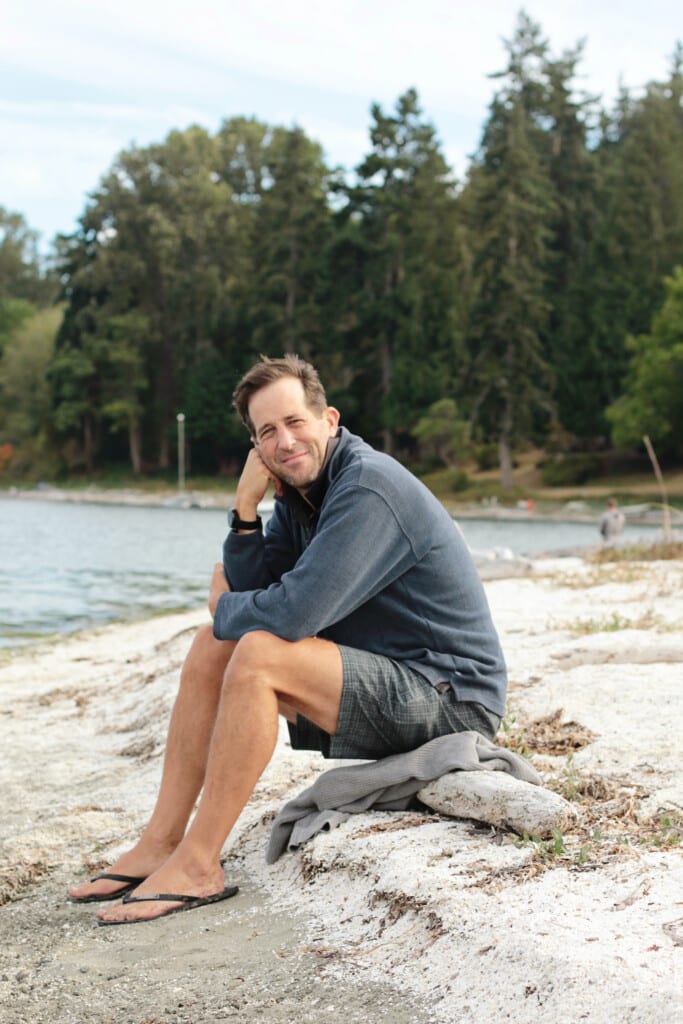Community Government
Keough returns to manage Gig Harbor parks
Matt Keough loves the outdoors. He loves swimming, hiking, kayaking on the Sound and even has hopes of maybe doing a triathlon someday.
As the city’s new parks manager, Keough is in a good spot to use his outdoors experience and perspective to benefit local parks and recreation spaces.
This is actually his second stint with the city of Gig Harbor. He worked as an associate planner for about two years and facilitated the initial permitting for the Kenneth Leo Marvin Veterans Park. That was when he got bitten by the park-managing bug.
Keough has also worked in parks administration and planning for Metro Parks Tacoma, and the cities of Covington, Washington and Raleigh, N.C. On this side of the bridge, he worked for Kitsap County and Bremerton.
But Gig Harbor is where he wants to be.

New Parks Manager Matt Keough has worked many places, but says Gig Harbor is where he belongs. Photo courtesy of Matt Keough
“This place is important to me personally and professionally,” he said in a recent phone interview. “The unique character, the natural beauty, the waterfront — those things can’t be overvalued.”
Parks commission chair Ben Coronado said that Keough is the right person for the parks manager job.
“Matt’s insight and understanding will be a great resource for the city. He’ll be a really good fit for this position,” Coronado said, adding that he was pleased that the city was “… able to attract so many qualified candidates for this position.”
Although he’s been on the job less than a month, Keough has already immersed himself in the parks commission’s work. Earlier this month he met with Sen. Emily Randall, D-Bremerton, and YMCA officials in a briefing about the sports complex. He has also jumped into the commission’s current project — updating the city’s Parks, Recreation and Open Space (PROS) plan. It’s a big job that has to be done every six years.
Late last year as part of the PROS plan update, the Parks Commission held public meetings and conducted surveys to gauge what citizens value most in local parks and trails, and what might make them better.
According to the research, the most popular reasons for using the city’s parks and trails are walking and running, visiting the waterfront, relaxing, attending events and concerts, wildlife viewing, water sports, dog walking, fitness and playgrounds.
Citizens also expressed a number of “wants,” including more trails, more tennis and pickleball courts, a new splash pad or spray park, an off-leash dog park and additional picnic areas and all-accessible playgrounds.
“I’m most interested in making sure that we provide for our community’s needs, and that our parks and trails — our assets — are well cared for and preserved,” he said. “How can we take what we have and make it even better?”
The parks belong to the community, he added. “Our parks are public investments and they should be as beneficial as possible. They’re public spaces that should also give people an awareness of the culture and history of our town.
‘We have a diverse community with diverse interests and needs, and we want to engage as many people as we can.”
Keough is a firm believer in collaboration and coordination among groups. He cited PenMet Parks as an example.
“I don’t want for us to do anything without first coordinating with PenMet,” he said. “Are they already providing a similar service or activity? Or is there something missing that the city might offer?”
He’s also a believer in what he calls “outcomes.”
“I’m a trained long-range planner, but I really want to provide a product to the community,” he said. “We need outcomes — a product that people can touch. Parks planning should be parks development.”
When he’s not planning and working to develop parks, Keough and his family can often be found hiking local trails. He’s especially fond of some of the heritage parks in Kitsap County — the North Kitsap Heritage Park and the new Central Kitsap Heritage Park.
“Those are examples of working with other jurisdictions to find successful outcomes,” he said. “Central Kitsap Heritage Park was owned by the state Department of Natural Resources and they’re in the business of growing and harvesting trees to support our state school system.
“In situations like that, it’s important for local planning and decision-making to be deeply involved in the process, to figure out what’s important to the people and how to preserve our forests and open spaces.”
Conservation is in Keough’s DNA. His ancestors settled in the Poulsbo area and his great grandparents were original sponsors of Chief Seattle Days in North Kitsap. And they were close friends with the Suquamish Tribe.
“My ancestors used to host potlatches with the Suquamish and they really honored their land and all the trees and living things on it,” he said.
The land is still in Keough’s family, and, he said, it’s a favorite place to rest and rejuvenate.
